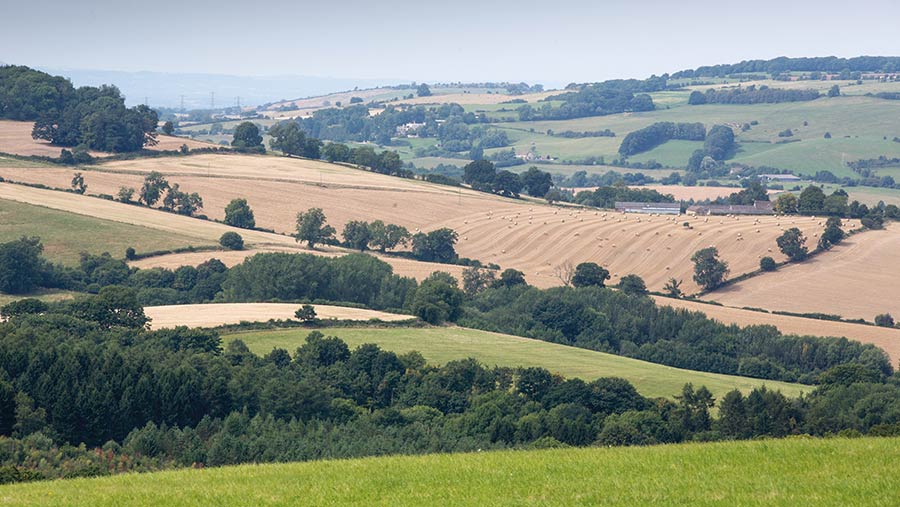Opinion: Farmland’s enduring appeal to the famous – and rich
 © Tim Scrivener
© Tim Scrivener A few weeks ago I had the privilege of looking round a farm owned by a well-known figure in the entertainment industry. It was well run and brimming with wildlife. It shows what someone can do who has an interest in the countryside, a capable farm manager – and some money.
It was not quite the same as Clarkson’s Farm, with the eponymous new farmer getting stuck in and putting farming out to a large TV audience.
Most celebs who acquire a bit of rural peace and quiet want to stay secluded – that’s why they bought it. And it’s a good place to build a recording studio.
See also: Jeremy Clarkson Q&A on farming – the best bits
Since Led Zeppelin bought a remote cottage in Wales in 1970, it’s been a tradition among pop stars and rock bands to have a pad in the country.
Although some are very hands-on – Roger Daltrey has a trout fishery in Sussex, and JB Gill (who was in boyband JLS) raises turkeys in Kent.
Alex James from Blur goes one better, with a prize-winning cheesemaking business in the Cotswolds. After all, Blur did write the song of all songs for this – Country House. “He lives in a house – a very big house in the country.” Yes, he does.
I reckon pride of place goes to Otis Ferry, son of Bryan, who became the youngest master of foxhounds of the South Shropshire hunt, and got arrested and imprisoned for his opposition to the bill to ban foxhunting. Tally-ho!
However, the money to buy serious amounts of land has always belonged to the industrialists, and their modern equivalents in tech companies. Dyson Farming owns more than 14,000ha of farmland in the UK, while in the US, Bill Gates owns almost 100,000ha.
These new landowners claim to be in it for more than the money. It’s about sustainable farming, embracing technology, seeing a new way to farm, etc. But it helps to have resources behind you, be they vacuum cleaners, software or playlist sales.
Industrialists in this country began to invest in country estates in the 19th century, although they did not put as much of their wealth into them as you might imagine. Hereditary aristocrats were still the largest landowners.
While owning an estate could be a way into high society, if you wanted land for status you could simply rent it. Unless it had another resource such as coal under it, farmland was pretty much a loss maker. Politically, landowning was becoming less acceptable, too.
In the 21st century, these men have been replaced by the Dysons and the Daltreys, and many others who have motives for buying a piece of the countryside – somewhere to live, if not to farm it themselves.
In the affluent South East, there will always be people wanting buy farms and live on them. And discovering you could work from home during Covid and not wanting to be locked down in London has boosted that desire.
And the wheel is coming full circle. With the Basic Payment Scheme (BPS) going, just as in the 19th century, unless the new owners are able to farm the land cost-effectively, it will absorb money rather than give it back.
In the shakeout from BPS, more farms will come onto the market. Who will their new owners be, and can they make them work – and be profitable? Time will tell.

